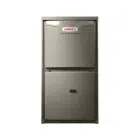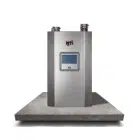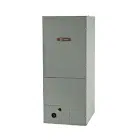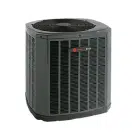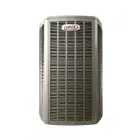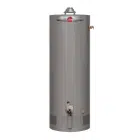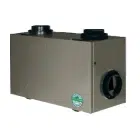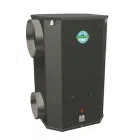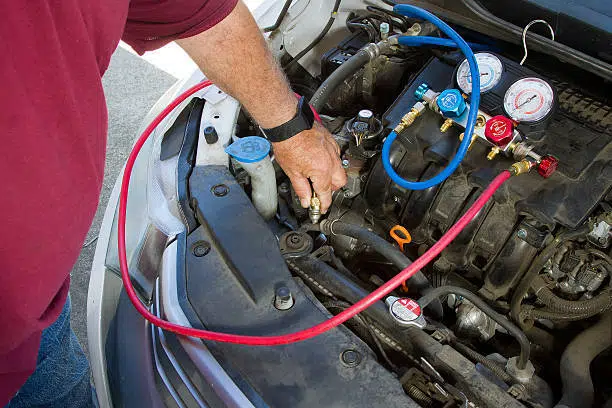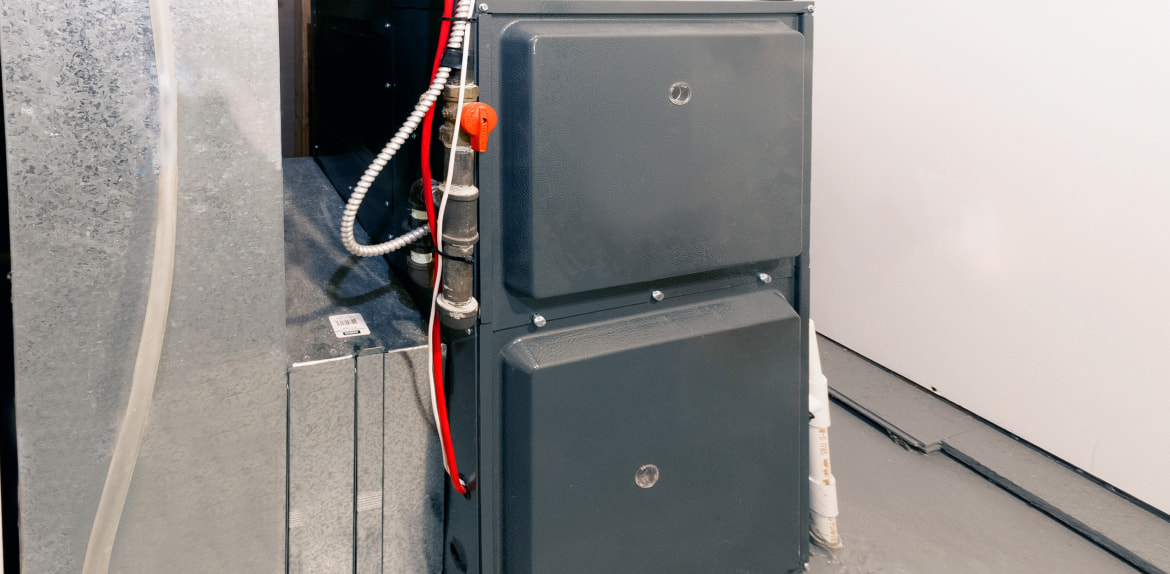
Table of Contents
As a homeowner investing in a new furnace, you would like to know how long you can expect it to serve you. In this article, we’ll explore an average life of a furnace, factors that influence its longevity, and warning signs of an aging furnace. As a delightful bonus, we will share some invaluable tips that’ll breathe new life into your furnace, extending its existence and saving your budget in the long run.
So, whether you’re a new homeowner or looking to replace your existing furnace, this article will equip you with the knowledge to make informed decisions about your heating system’s future. Scroll down and dive into this comprehensive guide on furnace lifespan with HVAC Service Solutions!
How Long Does a Furnace Last
So, how many years does a furnace last? Well, the furnace life expectancy can vary depending on its type. Gas, electric, and oil furnaces each have unique characteristics which affect their average lifespans. Let’s take a closer look at each:
Gas Furnaces
Gas furnaces are popular for their reliability and efficiency. On average, the lifespan of gas furnace is between 15 to 20 years. However, the answer to how long does a gas furnace last depends on factors such as the quality of installation, maintenance frequency, and usage intensity. For example, in areas with harsh winters, where the furnace operates more frequently, its lifespan might lean toward the lower end of the range.
Electric Furnaces
Electric furnaces have a longer average lifespan, ranging from 20 to 30 years. Since they have fewer mechanical components compared to gas furnaces, they are less susceptible to wear and tear. However, the longevity of electric furnaces can vary based on energy usage and technological advancements. We recommend switching to modern energy-efficient electric furnaces, as they might have a longer lifespan due to reduced strain on components and better materials.
Oil Furnaces
Oil furnaces typically have an average lifespan of 20 to 25 years. The period of how long a natural gas furnace lasts depends on proper maintenance and the availability of fuel. Regular servicing and cleaning can extend its life while neglecting maintenance can lead to a shortened lifespan. Take into account, that oil HVAC systems always require more regular maintenance than gas equipment. Additionally, fluctuations in oil prices and fuel delivery challenges can influence the decision to invest in an oil furnace.
Furnace Type | Average Lifespan | Influencing Factors |
|---|---|---|
Gas | 15-20 years | Installation quality, maintenance, usage |
Electric | 20-30 years | Energy usage, technological advancements |
Oil | 20-25 years | Maintenance, fuel availability, prices |
We’ve provided average terms of how long does a furnace usually last. But, as we mentioned before, proper maintenance, care, and technological advancements play significant roles in maximizing the longevity of your heating system.
By scheduling regular maintenance sessions with reliable experts at HVAC Service Solutions, you can significantly enhance the durability and efficiency of your heating system. This prudent decision not only safeguards your furnace against potential breakdowns but also saves you from costly repairs in the long run.
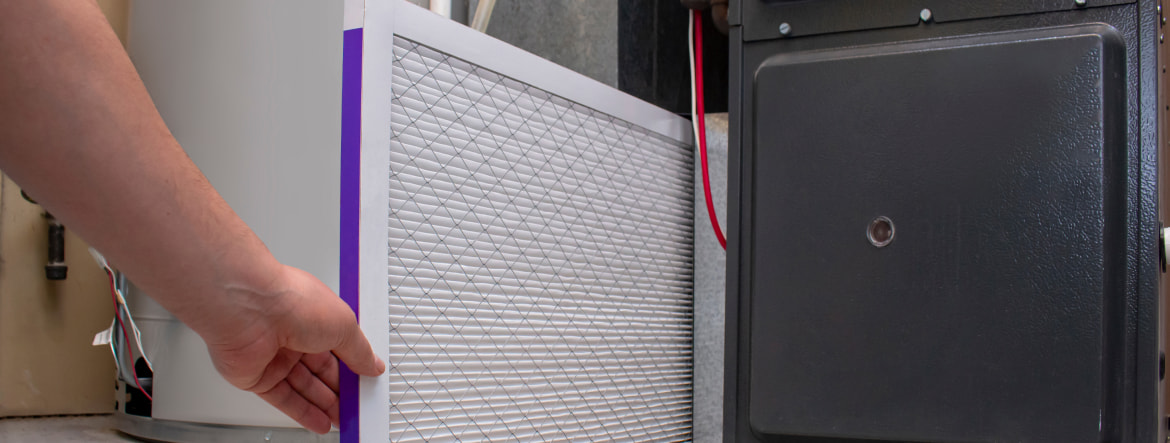
Factors Affecting Furnace Lifespan
Now, we invite you to dive deeper into the key factors that significantly impact how long a furnace lasts in Canada. Understanding these factors can help you take proactive steps to maximize your heating system’s longevity:
- Installation Quality: A correctly installed furnace by certified HVAC technicians ensures optimal performance and reduces the risk of premature breakdowns. Our pros are trained by Lennox, one of the biggest players in the HVAC game, and will assure you of the best furnace installation in the industry, providing peace of mind and optimal performance.
Find out how to save up to $10000 on your new furnace with Government Furnace Rebates Program in Ontario.
- Maintenance and Regular Servicing: Routine maintenance and timely servicing by a professional HVAC service are crucial to address minor issues before they escalate and to keep the furnace operating efficiently.
- Usage Patterns: The frequency and intensity of furnace usage, especially in cold climates, can accelerate wear and reduce the furnace’s lifespan.
- Environmental Conditions: Extreme weather, which is typical for the Canadian climate, humidity, and corrosive elements in the air can affect the furnace’s components and performance.
- Upgrades and Technological Advancements: Upgrading components and utilizing modern, energy-efficient technologies can extend the furnace’s lifespan.
- Brand and Model: Choosing reputable brands and models known for their durability and quality construction can result in longer-lasting furnaces. HVAC Service Solutions is your trusted dealer of top-notch products from industry leaders like Lennox, Trane, and RunTru, all at the fairest prices.
By paying attention to these factors and adopting good maintenance practices, you can maximize the lifespan of your furnace and ensure a comfortable living environment for years to come. In the next section, we’ll discuss common warning signs that indicate an aging furnace, helping you know when it’s time to take action.
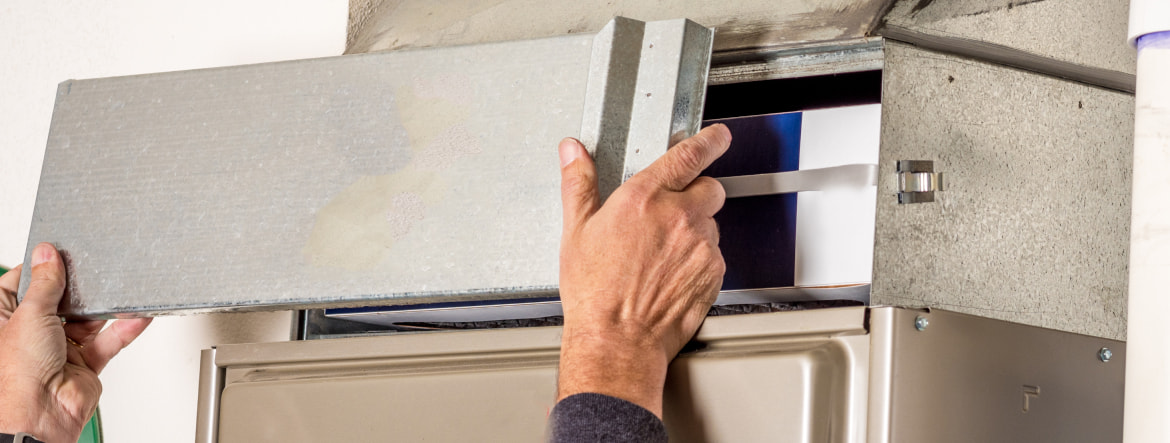
Signs of an Aging Gas Furnace
As your furnace approaches the end of its lifespan, it may exhibit warning signs indicating the need for attention or possible replacement. Being vigilant about these red flags can prevent sudden breakdowns and discomfort during cold weather. Here are the key indicators that your furnace might be showing signs of aging:
- Frequent Breakdowns: If you find yourself scheduling repair services more frequently, it could be a sign that your gas furnace is nearing the end of its life. Aging components may struggle to keep up with demands, leading to frequent malfunctions.
- Rising Energy Bills: A sudden increase in your energy bills without any significant change in usage habits could be a red flag. As gas furnaces age, they tend to lose efficiency, leading to higher operating costs.
- Uneven Heating: If your home has a case of the chills, with certain rooms getting a frosty reception while others enjoy toasty warmth, it’s possible that your gas furnace is playing favorites! This could be due to clogged ducts or failing components.
- Yellow Burner Flame: A healthy gas furnace burner flame should be blue with a small, steady yellow tip. If you notice a large, flickering yellow flame, it indicates incomplete combustion and potential carbon monoxide production. In this case, turn off the furnace immediately and seek professional assistance.
- Loud Noises: Unusual noises, such as banging, rattling, or squealing, are often signs of mechanical issues within the furnace. Ignoring these sounds can lead to further damage and costly repairs.
- Excessive Soot or Rust: If you observe a buildup of soot or rust on or around the furnace, it could indicate incomplete combustion or deteriorating components. Addressing these issues promptly is crucial to prevent safety hazards.
- Age of the Furnace: Lastly, consider the age of your gas furnace. If it’s approaching or surpassing its expected lifespan, it’s wise to start planning for a replacement to avoid sudden heating system failures.
Have you noticed one of these warning signs? It’s time to take immediate action! While a DIY repair may be tempting, we highly recommend scheduling an appointment with our professional experts at HVAC Service Solutions. Our team of experienced HVAC technicians will conduct a meticulous examination of your furnace, identifying any underlying issues and finding the best solution for you. Find more information about our furnace repair services in Canada on our website.
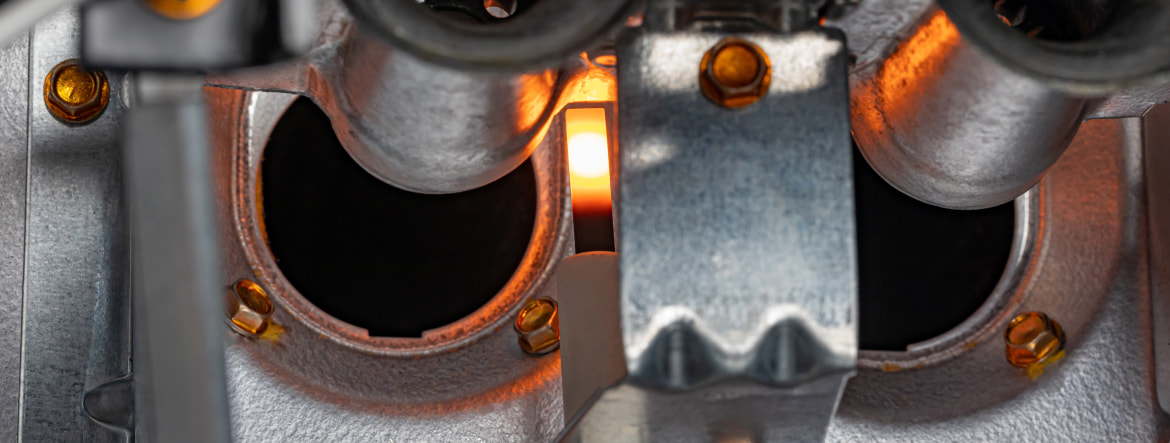
Extending Furnace Life Expectancy
Here is the good news! There are a few ways to maximize the term of how long does a high-efficiency furnace last. One of the most crucial steps is maintaining a clean and flawlessly functioning system. By doing so, you can minimize wear and tear on the various components of your unit, promoting optimal performance and extending its overall lifespan.
As your trusted heating experts at HVAC Service Solutions, we offer four essential tips to extend your furnace’s life expectancy:
1. Routine Maintenance by Professionals: Regular annual maintenance by our experienced HVAC technicians is crucial to keep your furnace running smoothly. Our team will thoroughly inspect, clean, and tune up your system, addressing any potential issues before they escalate. This proactive approach can significantly extend the life of your furnace and improve its energy efficiency.
2. DIY Maintenance and Care: In addition to professional servicing, you can take steps to care for your furnace between visits. Regularly changing air filters, keeping the area around the furnace clean, and ensuring proper ventilation will help maintain optimal performance and prevent unnecessary strain on the system.
3. Upgrading and Replacing Components: As your furnace ages, certain components such as air filters may wear out or become less efficient. Upgrading to energy-efficient parts can improve your furnace’s performance and save on energy costs. Our HVAC Service Solutions team can recommend and install the best components tailored to your furnace’s make and model.
4. Professional HVAC Services for Repairs: If you notice any signs of furnace trouble, such as unusual noises, poor heating performance, or frequent on/off cycling, don’t hesitate to call our experts at HVAC Service Solutions. Prompt professional repairs can prevent further damage and extend the life of your heating system.
By following these tips and relying on our dedicated team at HVAC Service Solutions, you can ensure your furnace operates at its best for many years, providing reliable warmth and comfort to your home.

When to Consider Replacement
While proper maintenance and care can significantly extend your furnace’s lifespan, there comes a time when replacement becomes a more practical option. At the end of the day, safety and comfort are our top one priority, right? Thus, here are some essential considerations to help you determine if it’s time to upgrade your heating system:
1. Frequent and Costly Repairs: If your furnace requires increasingly frequent repairs, and the cost of maintenance is becoming a burden, it may be more cost-effective to invest in a new, energy-efficient furnace. Repeated repairs can add up quickly, and the money spent on repairing an old unit might be better allocated to a new one with improved reliability.
2. Energy-Efficient Upgrades for Long-Term Savings: Older furnaces tend to be less energy-efficient, resulting in higher utility bills. Upgrading to a modern, energy-efficient furnace can lead to substantial long-term savings on your heating costs. Newer models are designed to meet higher efficiency standards, reducing energy consumption and lowering your carbon footprint.
As an official dealer of such famous names in the HVAC industry as Lennox, Trane, and RunTru, we offer a wide range of their top-notch HVAC products on our website. Tap the link below to choose your perfect furnace.
https://thehvacservice.ca/buy-furnace/
3. Assessing Safety and Reliability: As furnaces age, they may become less reliable and potentially unsafe. Safety concerns such as carbon monoxide leaks can pose a significant risk to your family’s well-being. If your furnace has surpassed its expected lifespan and safety is a concern, it’s time to consider a replacement.
4. Expired Warranty: The warranty on your furnace can provide peace of mind and financial protection. If your furnace’s warranty has expired, you may face higher costs for repairs or parts replacement. Upgrading to a new furnace with a warranty can offer added protection against unexpected expenses.
Our 30 years of practical experience and Lennox-trained technicians at HVAC Service Solutions ensure you get reliable solutions for your heating needs. Our team can help you evaluate the cost-effectiveness of repairs versus replacement and guide you toward the best heating options for your home. Contact us anytime via the link below.
Conclusion
We hope this comprehensive guideline has empowered you with valuable insights into your furnace’s lifespan and the factors impacting its performance. You can extend its efficiency and durability by considering factors affecting the furnace’s lifespan and adopting good maintenance practices.
At the same time, our team at HVAC Service Solutions is always just around the corner to guide you toward the best heating solutions. Let us help you stay warm and comfortable for years to come!
FAQ About Furnace Lifespan
How Long Does a Furnace Last?
Furnace life expectancy varies depending on the furnace type. Generally, gas furnaces last between 15 to 20 years, while electric furnaces can endure up to 20 to 30 years. Oil furnaces, on the other hand, typically last around 20 to 25 years.
How Long Does a Gas Furnace Last?
The typical lifespan of a gas furnace ranges from 15 to 20 years. However, the actual duration of a gas furnace’s life is contingent upon various factors, including the quality of installation, how often it receives maintenance, and the intensity of its usage. For instance, regions experiencing severe winters, where the furnace operates more frequently, may see its lifespan tend toward the lower end of the spectrum.
How Long Does a Furnace Last in Canada?
In the colder climate of Canada, where furnaces work hard to keep homes warm during long winters, their average lifespan is generally between 15 to 20 years. To ensure your furnace endures through Canadian winters, regular maintenance, and professional servicing are crucial. HVAC Service Solutions is here to help you maintain and extend the life of your furnace, ensuring reliable heating for many seasons to come.
Share

